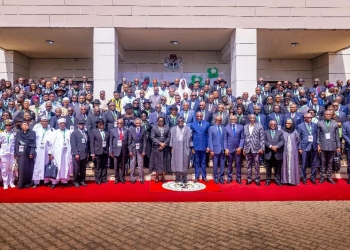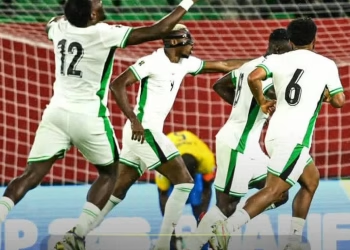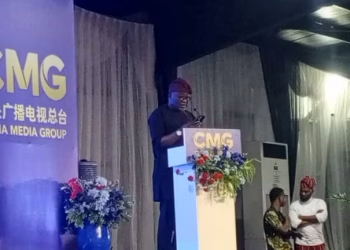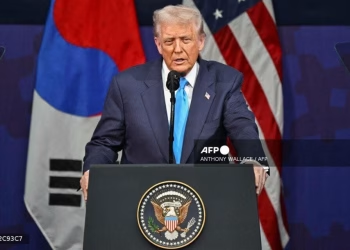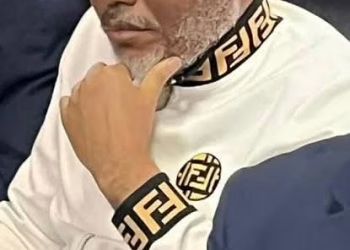The Managing Director of NDDC represented by the Special Assistant Legal, Mr. Ochu Chukwuma and 30 other personnel of Department of Conflict Resolution (DCR) and other strategic stakeholders of the commission led by the Acting Director, Goddy Ogedegbe Ayewumi last weekend attended a 3-Day Capacity building Retreat on Communal Dispute and Peaceful Resolution in Lagos.
The retreat also featured a tour of the yet to be commissioned Lagos Museum (JK Randle Centre for Yoruba Culture and History) conducted by the Lagos State Ministry of Tourism, Arts and Culture.
The retreat with the theme Communal Dispute in the Niger Delta Region: The role of NDDC Staff in promoting peaceful resolution facilitated by Development Projects (PEDEP) featured presentations on subthemes: “Peace as a Multi-Stakeholder Enterprise” by Mr. Jide Ojo of OJA Development Consult; “Communication and Interpersonal Conflict Management-Interpersonal Self Awareness: A Power Perspective” by Professor Abigail Odozi Ogwezzy, Director, Institute Of Continuing Education (ICE), University Of Lagos University of Lagos; “The Niger Delta and the Imperative of Multi-Track Diplomacy’ by Dr. Tunde Akanni of the Department of Mass Communication, Lagos State University (LASU) and “Goal Setting Agenda for Conflict Management and Dispute Resolution at the Community level” by Osaze Lanre Nosaze, Director, Projectworks of Xtrimedia and Francis Abayomi, Director, PEDEP.
In his welcome address, the Director of PEDEP, Francis Abayomi reiterated the imperative of requisite knowledge and skills for personnel charge with responsibilities of implementing in intervention mandate of the NDDC. He commended the commission for prioritizing capacity building for personnel of the Department of Dispute and Conflict Resolution which elaborately speaks to the proactiveness of the current leadership of the NDDC.
The Acting Director of DCR, Goddy Ogedegbe Ayewumi affirmed the commitment of NDDC personnel to promoting communal harmony and peaceful coexistence across the communities in the Niger Delta. The retreat, according to him, was a demonstration of the commitment of the leadership of the current Managing Director / CEO of NDDC, Dr. Samuel Ogbuku to sustain the existing peace and stability in the Niger Delta region which is an important precondition for development.
While declaring the retreat open, the representative of the MD/CEO and the Special Assistant Legal, Mr. Ochu Chukwuma urged personnel of the DCR and the strategic NDDC staff at the retreat to make effective use of additional knowledge and skills acquired to consolidate on the peace process across communities in the Niger Delta region.
The following observations emerged from exhaustive interactions and engagement process at the retreat
Conflict is a permanent feature of human societies. Appropriate and timely response to conflict engenders peace and developmental by enhancing better understanding of some otherwise complicated issues and may lead to enhanced transparency with regards to public conduct or transactions.
Diversity and differences in ethnic, social and economic backgrounds may necessitates divergent opinions on issues and therefore requires conscious efforts to foster better understanding amongst stakeholders in the community.
imperative of inclusive engagement which must reflect diversity of gender-based concerns and primary interest of people with disability (PWDs) in the community.
Sustenance of peace in the community is the responsibility of all stakeholders. It is incumbent on all stakeholders to strive to make attainment of peaceful coexistence a reality.
Unflinching commitment of DCR personnel to peace building process even when it appears inconvenient is imperative and may require the use of personal facilities like telephones and airtime and data when situation demands.
In the course of building and sustaining peace, it is pertinent to appreciate that justice is a recurrent denominator. Justice must therefore be seen to be served always otherwise whatever peaceful situation is presumed to have been attained may not endure.
Communication sustains domestic relationships and thus equally germane for sustaining relevance as NDDC personnel as peace actors in the community.
Cordial relationship with the community through regular interface and functional communication channels is desirable and should be accorded priority.
The meeting recommended among other things that DCR personnel should be sensitive and proactive with regards to conflict situations and core issues in disputes as they may pertain to individuals and communities; DCR personnel should demonstrate a fair understanding and tolerance for diversity along social, ethnic, religious and economic divides in engaging with communities as badly managed biases may undermine otherwise fair intentions and engagement with communities.
It also recommended that the DCR in partnership with the corporate communications department of NDDC should collaborate with media experts and strategic NGOs to sustain public awareness and promote accurate narratives about the NDDC and the situation in the Niger Delta.
In its conclusion, PEDEP appreciates the NDDC for the initiative and expresses delights for partnering with the DCR in facilitating the retreat. PEDEP commends DCR personnel and strategic staff of the NDDC who participated in the retreat and expresses confidence that the participants will deploy relevant skills with renewed commitment for robust engagement with stakeholders to promote peaceful resolution of communal disputes in the Niger Delta.
As part of the NDDC 3-day Capacity building retreat, participants were taken on a tour of the yet to be commissioned Yoruba Museum (JK Randle Centre for Yoruba Culture and History) conducted by the Lagos State Ministry of Tourism, Arts and Culture).
The magnificently rich and captivating facility is located at Onikan, opposite the national museum, Onikan Stadium, Lagos. The structure houses one of the oldest swimming pools in West Africa, a library, lounges and many historical slave trade and precolonial facilities.
The tour helped the participants to appreciate the influence of cultural beliefs and tradition. More importantly, the tour provides deep insights into how knowledge of the history, beliefs and tradition of communities can help prevent and or resolve communal disputes in order to facilitate an effective developmental drive to the different parts of the Niger Delta.
The visit also encouraged unity and collaboration between the Niger Delta Development Commission (NDDC) and the Lagos State government in the development of culture and tourism in Nigeria.



